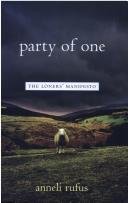Pete Dexter, the former great newspaper columnist and author of one of my favorite novels (“Deadwood”) was on KQED’s “Forum” Wednesday morning, part of a tour promoting a new book, “Paper Trails.” At the prompting of host Michael Krasny, he told this story (the MP3 show audio is here):
“It started with a column about some drug activity in a real bad part of, well wasn’t that bad a part of Philadelphia, it was the Tasker neighborhood, and this kid had gotten himself killed in a drug deal. And I wrote about it, they had a meeting that I wasn’t supposed to go to but I knew a lot of guys in Tasker, so I went to the meeting and wrote about it. It was really too bad, because this was a kid who woulda–he wasn’t a bad kid. So you’re against drugs, big deal. So I write the column and I get a call; the column came out weeks after the incident and right after the meeting. And I got a call from the kid’s mother and she was hysterical saying I’d brought it all back and stuff and I felt real bad and apologized and she wanted a retraction. I didn’t know what she was gonna retract, I mean the kid got hit in the back of the head so hard with a baseball bat that one of his eyeballs had come out and they found him dead in a stream.
“I was very nice to her, but she wasn’t having it, and then her older son called and we go through the same song and dance. And at some point in this conversation the guy started talking about how he was going to come find me and he was gonna break my legs and break my hands and all this stuff. At that point in my life, you said something like that to me I wasn’t going to come looking for you to hurt you but I was going to make myself available. I was in the gym every day then, I could take care of myself.
“I said where are you and he told me he worked in a neighborhood called Devil’s Pocket; it’s a real well-named place in Philadelphia, it’s about the worst neighborhood in that city. I went over there at 8 o’clock at night and he was sitting in there with four or five guys … we talked a little bit and I thought everything was settled and I turned away and somebody hit me, then I got hit with a beer bottle. I wasn’t hurt–my teeth were sheared and my lips were busted up–but I wasn’t hurt. And that night, it was December and I was going over to a birthday party at my friend Randall Cobb, who at the time was a–you know Randall didn’t have the talent to beat Larry Holmes, probably, but he had a fight with Mike Weaver who was the WBA champion at that time and he probably would have beaten Weaver because Cobb you could hit him with a pipe and he just could hardly be hurt. He was a pretty good fundamental boxer, wasn’t fast, didn’t have much talent or a whole lot of punch but he had beaten Ernie Shavers and he probably would have beaten this guy Weaver. Which means when he fought Larry Holmes and lost, which wound up happening, he would have come in as a white heavyweight champion of his own fighting the other guy and it would have been a huge money match. We’re just talking dollars and cents here–he would have gotten five or ten million dollars for that fight.
“I went to Cobb’s birthday party, I think it was his 28th birthday, and he saw me and asked what happened and I told him and he said, well, do you want to go talk to them about it? And it’s one of the many moments of my life where I wasn’t thinking in everybody’s best interest; I said all right and so we went back over and talked to these people a little bit. And Cobb kept saying to me, well what do you want to do? Well one of the guys sitting in there, this little fat guy, ran out the back door. The last thing I really wanted to do–I wasn’t there to get even, we just walked in there, there’s four or five guys, I don’t know, maybe six sitting there. Cobb and I–we had nothing to take care of that but all of a sudden this guy–in two minutes that place just filled up with people with softball bats and reinforced steel with little tape markings on the handles where they would use them to hit people, and crowbars. And I remember Cobb looking at the–it was snowing outside by now, and Cobb looking at these people pouring into the bar and saying to me, ‘Don’t you hope that’s the softball team?’ I was so scared I really could hardly laugh. And one thing led to another. …”
You guys got worked over pretty bad.
“I ended up–my back was broken.Yeah, giving the guy credit, he said he’d break my legs, and he did break a leg. I had bleeding on the brain. To this day things don’t work right.
“But the more expensive damage was probably done to Cobb, because he broke a little bone in his left forearm which is for a right-handed fighter, for Cobb anyway, that was all his offense anyway, he was a jabber. So he didn’t get the fight with Weaver, the fight fell through, so when he fought Holmes he got half a million dollars for it. “
Like this:
Like Loading...

